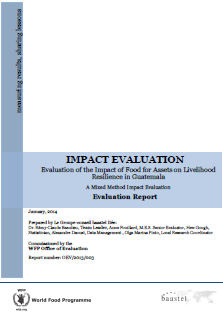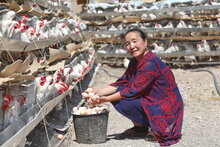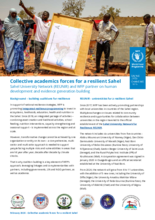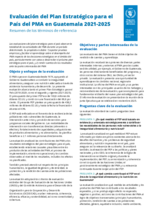
This evaluation was one in a series that assessed the outcomes and impacts of WFP's food-for-assets programming on livelihoods resilience. The evaluation identified lessons and changes for enhancing the impacts on resilience and aligning food-for-assets programming with WFP's recently adopted 2011 Food for Assets Guidance Manual and Disaster Risk Reduction Policy. The evaluation covered the food/cash for assets component of WFP Guatemala Country Programme 10092 (2003-2005) and the Guatemala component of the Regional Protracted Relief and Recovery Operation 10444 (2007-2010). Participants were supported with food during the lean season complemented by training.
The evaluation used a theory-based mixed method approach that included household surveys, asset assessments, focus groups, and interviews. The evaluation found that WFP Guatemala achieved impacts in short term food security, livelihoods and biophysical condition of the land base. There were no significant improvements in food consumption score or dietary diversity. The evaluation recommended that WFP reframe its FFA programming to address disaster risk reduction and response, concentrate its efforts, improve the framework for addressing gender issues and develop a more robust monitoring and evaluation system.



